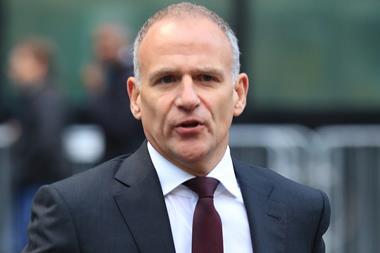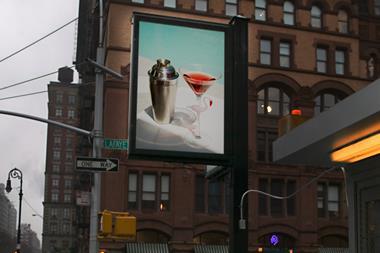Taxes on this lower-strength alcohol should be lower than on other drinks as it costs more to produce, argues Dr Isaac Sheps
We are now days away from chancellor George Osborne's second budget. Many manufacturers and suppliers are looking for some encouragement something that will help them to get their businesses moving forward.
Carlsberg UK and every other brewer in the UK will also be hoping the Chancellor accepts that there is an urgent need to freeze beer duty and scrap the beer duty escalator. It is a firmly held hope, but one tarnished by bitter memories. For more than a decade, despite strong lobbying efforts, beer has been losing the duty battle. It has been taxed more aggressively than any other drinks category.
In the past three years alone, tax on beer has risen by an eye-watering 26%. This has been a result of the 2008 decision to introduce a beer duty escalator. While announcing that year's budget, chancellor Alistair Darling said the escalator would see beer duty increase at 2% above the level of inflation every year for the next four years.
And while this was going on, other alcoholic drinks categories were being treated rather better. Statistics recently released by the Office of National Statistics and HMRC show that between 1997 and 2010, beer duty in real terms increased by 15%. Spirits duty, on the other hand, fell by more than 20%.
Cider has also been received much more favourably by the Treasury. The crowning example of this was the budget last March, when the government announced an increase in cider duty of 10% above the rate of inflation. But within three weeks it performed a u-turn and left the measure off its Finance Bill.
So the big question is: why has beer been losing the duty battle? Beer is a lower-strength alcoholic beverage compared with its main rivals. So why have successive governments penalised it? Surely they would want to push drinkers towards lower strength products?
Britain seems to be in a world of its own when it comes to the way it taxes beer. It is something that I have failed to understand since I arrived in the UK, coming from my previous role as chief executive of Carlsberg South-East Europe.
Just look at the way Britain taxes beer and spirits in comparison with the rest of Europe. Every other country takes the much higher cost of beer production compared to spirits production into account and taxes the categories accordingly.
In Britain this is not the case. Spirits duty is only 1.4 times more than beer duty. Compare this with France, where it is five times higher, and Germany, where it is more than six times higher. In Poland, a country well known for its vodka productions, spirits duty is three times higher. The fact is that the current alcohol duty regime in the UK is not balanced. And this imbalance urgently needs to be addressed.
There are some producers who believe, in an almost Orwellian way, that all alcohol should be treated equally. This ignores the greater cost of production and does not take into account wider economic, health and social dimensions.
Brewers hope that as Wednesday approaches, George Osborne and his team have taken this into account. If not, then depending on what level of inflation the Treasury chooses to use, we could see an increase in beer duty of up to 7%.
And where would that leave beer in the UK?
Dr Isaac Sheps is chief executive of Carlsberg UK.
We are now days away from chancellor George Osborne's second budget. Many manufacturers and suppliers are looking for some encouragement something that will help them to get their businesses moving forward.
Carlsberg UK and every other brewer in the UK will also be hoping the Chancellor accepts that there is an urgent need to freeze beer duty and scrap the beer duty escalator. It is a firmly held hope, but one tarnished by bitter memories. For more than a decade, despite strong lobbying efforts, beer has been losing the duty battle. It has been taxed more aggressively than any other drinks category.
In the past three years alone, tax on beer has risen by an eye-watering 26%. This has been a result of the 2008 decision to introduce a beer duty escalator. While announcing that year's budget, chancellor Alistair Darling said the escalator would see beer duty increase at 2% above the level of inflation every year for the next four years.
And while this was going on, other alcoholic drinks categories were being treated rather better. Statistics recently released by the Office of National Statistics and HMRC show that between 1997 and 2010, beer duty in real terms increased by 15%. Spirits duty, on the other hand, fell by more than 20%.
Cider has also been received much more favourably by the Treasury. The crowning example of this was the budget last March, when the government announced an increase in cider duty of 10% above the rate of inflation. But within three weeks it performed a u-turn and left the measure off its Finance Bill.
So the big question is: why has beer been losing the duty battle? Beer is a lower-strength alcoholic beverage compared with its main rivals. So why have successive governments penalised it? Surely they would want to push drinkers towards lower strength products?
Britain seems to be in a world of its own when it comes to the way it taxes beer. It is something that I have failed to understand since I arrived in the UK, coming from my previous role as chief executive of Carlsberg South-East Europe.
Just look at the way Britain taxes beer and spirits in comparison with the rest of Europe. Every other country takes the much higher cost of beer production compared to spirits production into account and taxes the categories accordingly.
In Britain this is not the case. Spirits duty is only 1.4 times more than beer duty. Compare this with France, where it is five times higher, and Germany, where it is more than six times higher. In Poland, a country well known for its vodka productions, spirits duty is three times higher. The fact is that the current alcohol duty regime in the UK is not balanced. And this imbalance urgently needs to be addressed.
There are some producers who believe, in an almost Orwellian way, that all alcohol should be treated equally. This ignores the greater cost of production and does not take into account wider economic, health and social dimensions.
Brewers hope that as Wednesday approaches, George Osborne and his team have taken this into account. If not, then depending on what level of inflation the Treasury chooses to use, we could see an increase in beer duty of up to 7%.
And where would that leave beer in the UK?
Dr Isaac Sheps is chief executive of Carlsberg UK.














No comments yet